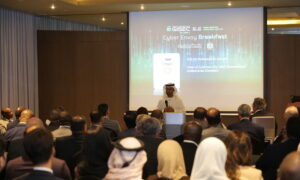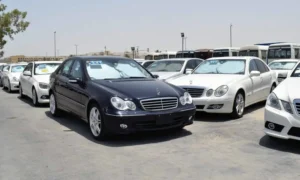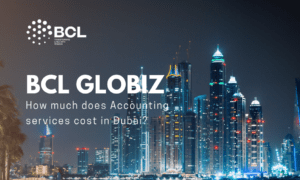Dubai’s evolution from a land of sand dunes to a financial hub synonymous with luxury, skyscrapers, and opulence, has been remarkable over the past few decades. While it may have risen from the desert sands as a symbol of modernity and extravagance, it is also making its mark in the world of finance. This blog post delves into the fascinating evolution of Dubai from a barren desert landscape to a thriving financial powerhouse.
The Visionary Leadership
Dubai’s transformation into a financial hub can be largely attributed to the visionary leadership of the ruling Al Maktoum family. Under the guidance of leaders like Sheikh Rashid bin Saeed Al Maktoum and his son, Sheikh Mohammed bin Rashid Al Maktoum, the emirate embarked on a journey to diversify its economy beyond oil and create a business-friendly environment.
Geographic Advantage Leading to Dubai’s Evolution
- Strategic Location: Dubai’s strategic location at the crossroads of Europe, Asia, and Africa has been a pivotal factor in its transformation into a global financial hub. It serves as a crucial link between the East and the West, making it an ideal place for international trade and commerce.
- Connectivity: The city’s proximity to major emerging markets, including India, China, and Africa, has made it an attractive destination for businesses seeking to access these markets. Dubai’s modern infrastructure, including its world-class airports and seaports, makes it a logistical hub for global trade. The Dubai International Airport is one of the world’s busiest, connecting the city to more than 260 destinations across the globe.
- Gateway to the Gulf Region: Dubai also serves as the gateway to the Gulf Cooperation Council (GCC) countries, which are collectively a significant economic force in the Middle East. Its geographic position allows businesses to easily access the GCC markets, providing them with a competitive advantage in the region.
- Global Trade Hub: The city’s strategic location has led to the development of free trade zones and business parks that cater to various industries. The Jebel Ali Free Zone (JAFZA) and Dubai South’s Logistics District, for instance, offer tax incentives, simplified business processes, and excellent connectivity, making them attractive options for businesses looking to establish a presence in the region.
- Multicultural Population: Dubai’s diverse and multicultural population, consisting of expatriates from around the world, further enhances its position as a global financial center. This mix of cultures and expertise creates a dynamic and open business environment, fostering innovation and collaboration across borders.
- Financial Services Hub: Dubai’s strategic location has also propelled it into the forefront of the financial services sector. It acts as a bridge between Western and Asian financial markets, enabling international financial institutions to provide services to clients across the globe. The time zone of the city allows for significant overlap with both Asian and European trading hours, making it a prime location for financial institutions and investors.
- Access to Resources: Dubai’s location on the shores of the Persian Gulf provides access to significant natural resources, including oil and gas. This access has helped fund the city’s growth and infrastructure development, which, in turn, has supported its evolution into a financial powerhouse.
Dubai International Financial Centre (DIFC)
Established in 2004, the Dubai International Financial Centre has been a cornerstone in Dubai’s financial evolution. It offers a legal and regulatory framework on par with leading global financial centers, attracting numerous financial institutions, law firms, and businesses to set up shop within its precincts.
Real Estate Boom
Dubai’s iconic skyline, dominated by structures like the Burj Khalifa, is not just a symbol of architectural prowess; it’s also a testament to the city’s real estate boom. A thriving property market has attracted both domestic and international investors, adding to the city’s economic growth.
World-Class Infrastructure
Dubai’s investment in world-class infrastructure, from transportation systems to telecommunications, has further facilitated its transformation into a financial hub. The city boasts top-notch airports, ports, and communication networks that make it an attractive destination for businesses.
Tax Advantages
One of the key factors driving Dubai’s rise as a financial powerhouse is its favorable tax environment. The absence of personal income tax and the low corporate tax rates have enticed many businesses and expatriates to set up operations in the city.
Financial Markets
Dubai has its own stock exchange, the Dubai Financial Market (DFM), and the NASDAQ Dubai, which provides a platform for trading equities, bonds, and other financial instruments. These markets have contributed significantly to the financial ecosystem in Dubai.
Islamic Finance
Dubai has also played a vital role in the global expansion of Islamic finance. It hosts numerous Islamic banks and institutions, contributing to the development of Sharia-compliant financial services worldwide.
Trade and Business Hubs
The Dubai Multi Commodities Centre (DMCC) and Dubai World Trade Centre (DWTC) have facilitated trade and commerce by providing state-of-the-art facilities and networking opportunities for businesses across various sectors.
Conclusion
Dubai’s evolution from a land of sand dunes to a financial powerhouse is a testament to the city’s resilience and ambition. Driven by visionary leadership, strategic geographic location, robust infrastructure, tax advantages, and a diversified economy, Dubai continues to attract businesses and individuals seeking a dynamic and thriving financial environment. As it looks ahead, Dubai’s commitment to innovation and adaptability ensures it will remain a global financial force to be reckoned with.



































